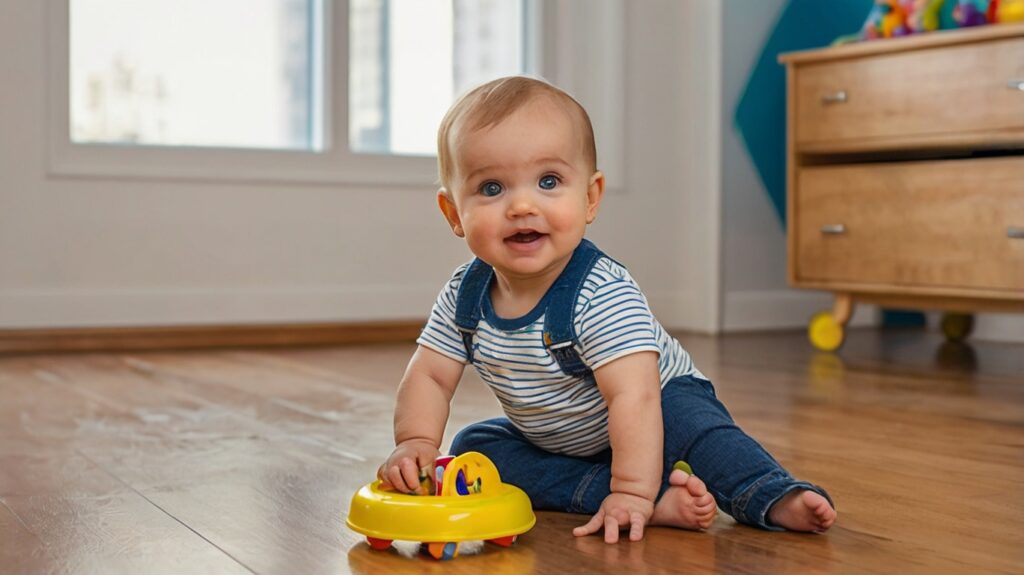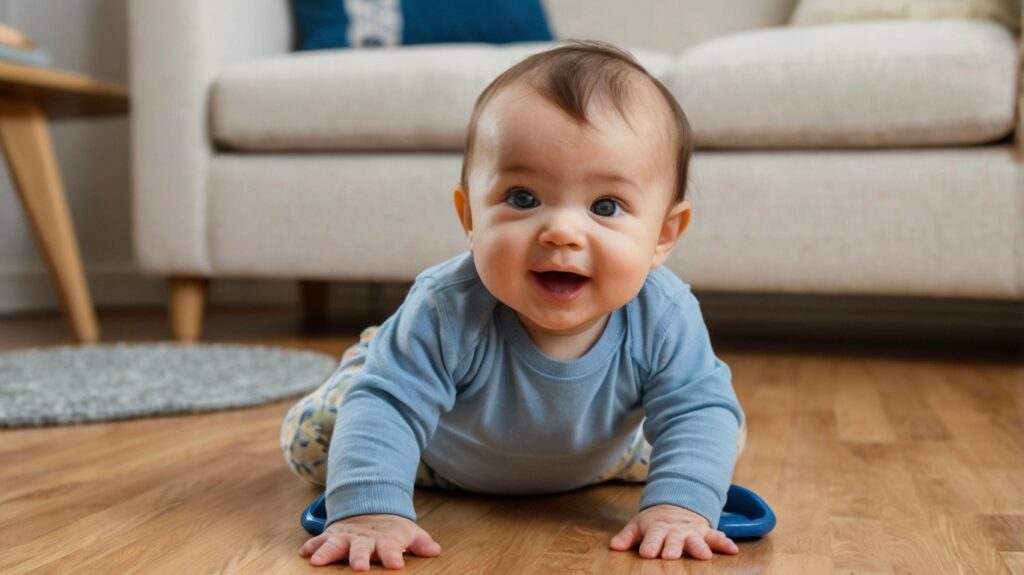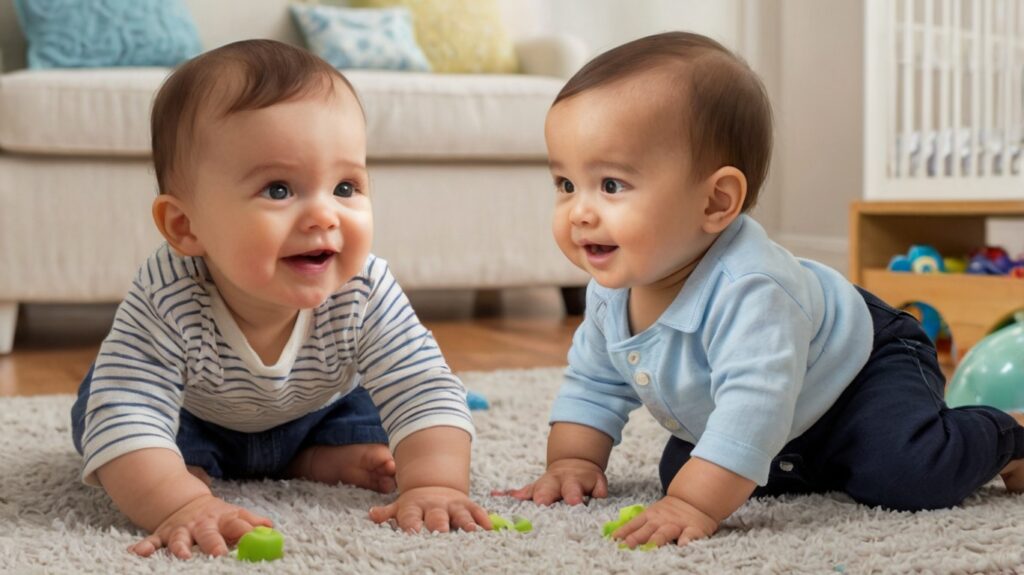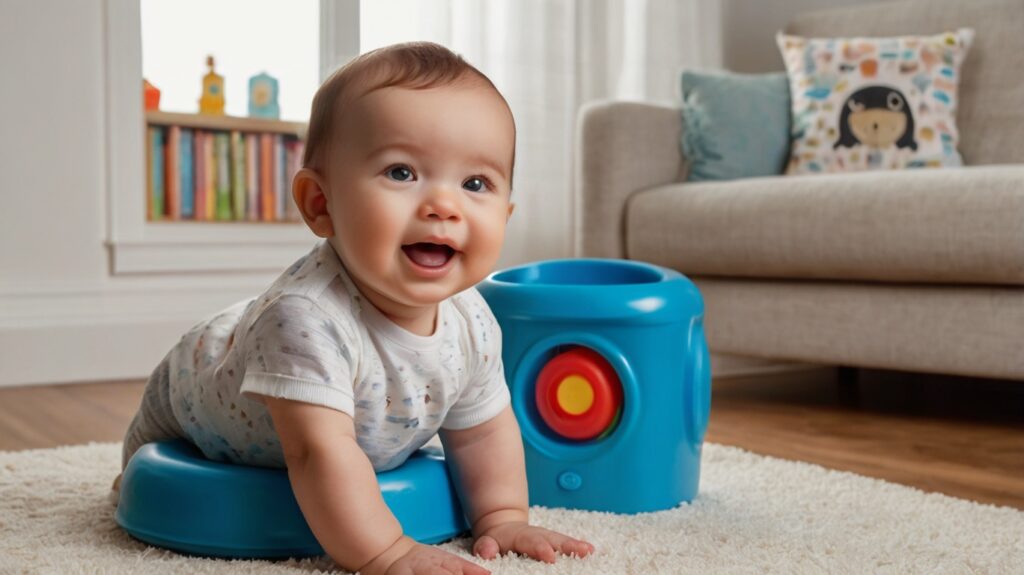
At 7 months, your baby is quickly becoming more active, curious, and social. This stage is full of exciting changes, from improved mobility to stronger communication skills. Your little one is starting to explore the world in new ways, which means more fun—but also more baby-proofing for parents!
Physical Development
- Sitting more steadily – Many 7-month-olds can sit without support for longer periods and may use their hands to balance.
- Rolling and starting to crawl – Some babies begin to inch forward, rock on their hands and knees, or scoot across the floor.
- Improved grasp – Your baby can pick up larger items easily and may start using a raking motion for smaller objects. The pincer grasp (thumb and forefinger) may begin developing soon.

Cognitive Development
- Cause and effect learning – They enjoy dropping or banging objects to see what happens.
- Exploration – Everything goes into their mouth as part of sensory learning.
- Recognition of routines – They begin to anticipate daily activities, like feeding or bedtime.
Social and Emotional Development
- Attachment grows stronger – Babies may cling more to caregivers and show stranger anxiety.
- Expressive emotions – Lots of smiles, laughter, squeals, and even frustration when things don’t go their way.
- Engaging interactions – Peekaboo, singing, and playful games become favorite activities.

Feeding at 7 Months
- Breast milk or formula still primary – Continue 24–32 ounces per day.
- Solids expanding – Along with iron-rich foods and purees, you can introduce mashed fruits, soft veggies, and small amounts of protein (like soft chicken or beans).
- Finger foods – If baby shows readiness, try small, soft pieces they can pick up themselves. Always supervise closely.
Sleep Patterns
- Night sleep – Many babies sleep about 10–12 hours at night, with 1–2 wake-ups possible.
- Naps – Usually 2–3 naps a day, lasting 1–2 hours each.
- Sleep regression – Around 7 months, some babies experience disruptions due to teething or developmental leaps.

Safety Tips
- Baby-proofing is essential—cover outlets, secure furniture, block stairs, and keep choking hazards out of reach.
- Use a rear-facing car seat at all times.
- Never leave your baby unattended on high surfaces.
When to Check With Your Pediatrician
Every baby develops at their own pace, but talk to your doctor if your 7-month-old isn’t showing interest in rolling, sitting with support, making sounds, or responding to voices.
Your 7-month-old is blossoming into a curious little explorer. This stage is all about discovery—textures, tastes, sounds, and movement. With your love, encouragement, and safety guidance, your baby will continue to grow into their unique personality and abilities.